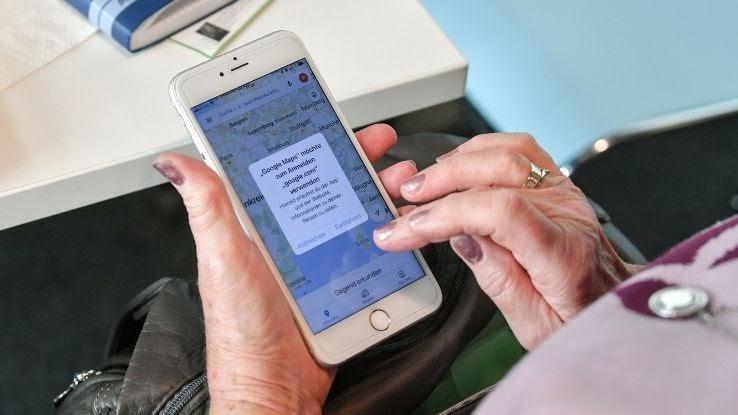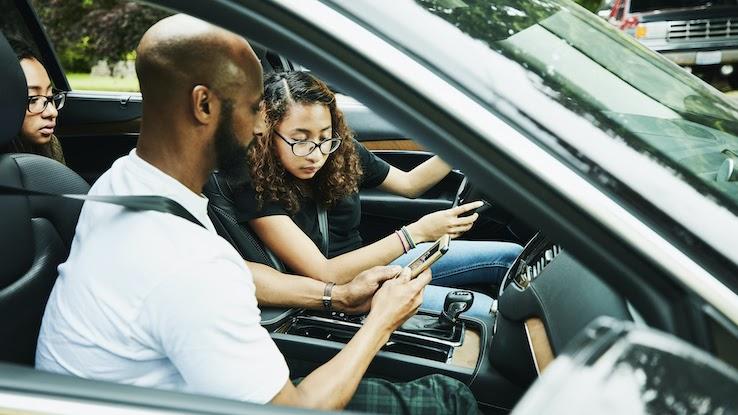Why Is The Spectrum App Not Working?

Keeping an eye on loved ones and ensuring they're safe is a common concern, particularly for parents with teens who are just starting to explore their independence. If you want to stay up to date on a child or family member's whereabouts without checking in with them constantly via text messages or phone calls, one effective tool for doing so is a cell phone tracker app. To make sure you're getting the most out of every feature of these apps, though, it's important to understand what trackers can do — and what they can't.
If you're considering using a cell phone tracking app, you'll want to learn exactly how they work, how accurate they are and how to install them. And you'll also need to choose the best cell phone tracker app — one that's family friendly with all necessary features to ensure you're aware of where everyone is when you need to know.
How Do Cell Phone Tracker Apps Work?
Most tracking apps are much simpler than they look, even though advanced mobile phone tracking is a relatively new technology that continues to develop. Families are able to track the location of a loved one's mobile phone — and, thus, the person carrying the phone — in several different ways. These are generally based on global positioning systems, or GPS.

GPS navigation systems use networks of satellites that receive signals from devices like smartphones. The satellites send location data, which they gather from the signals they receive, to GPS receivers. The receivers then use the data to calculate the location of a smartphone or other device, pinpointing exactly where it is.
However, cell tracking apps use different device components to gather data and track those devices. Below are some of the common components and other elements on which these systems base their tracking data.
- Network-based tracking: This type of tracking focuses on the network of devices' service providers; it's typically able to track locations within 150 feet from the network's cell towers. If someone is using their phone anywhere in that range, the phone's location can be tracked based on data from the network's cell towers.
- Handset-based tracking: Handset-based tracking requires specific software to be installed on the phone you want to track. It can track a device using the GPS location combined with network-based tracking.
- SIM-based tracking: It's also possible to track a phone solely using data from its SIM card. This format focuses on location tracking of the device's coordinates, which are captured by the mobile network. As long as a smartphone is on and has a signal, this form of tracking can work.
- Wi-Fi-based tracking: As tracking technology has further developed, it's allowed for a new way of tracking: through Wi-Fi. This type uses a smartphone's Wi-Fi access-point history to pinpoint a location rather than relying on the network service.
- Hybrid positioning system: The majority of modern smartphones use this type of tracking, which essentially combines all of the above, using GPS, satellites and network information to deliver better accuracy about a device's location.
The accuracy of cell phone tracking depends on several variables, including the number of cell towers, the network's own technology and the signals that the app network can receive. With that in mind, hybrid positioning systems stand out from the rest due to their use of satellites. Mobile apps tend to rely on these systems more than others, as the tracking tends to be more accurate. These location-tracking technologies enable the apps to be more accurate in finding someone's device.
The way you'll install cell phone tracking apps depends on your phone's operating system. If your device is running iOS, you actually don't need to install a separate app if you don't want to. If you're running Android, the steps are a little different.

- Cell Phone Tracking via an iPhone: iOS devices come with a program called Find My iPhone pre-installed, and it's made by Apple. While this app is designed to find a device if you lose it somewhere, it also gives you the option to track loved ones' devices using the "family sharing" feature. You'll need to activate this feature on all the iPhones you want to track, and you can then view trackable devices using iCloud. If you opt for another app you'll need to install it from the App Store.
- Cell Phone Tracking via an Android: Similarly to iOS devices, Android smartphones can run an app called Find My Device. Newer Android smartphones come with this service already enabled and activated, but if you have older devices you want to track, you'll need to download the app from the Google Play Store.
The Best Cell Phone Tracking Apps for Families
While you might find your device's operating system's proprietary tracking app sufficient for your needs, other tracking apps offer additional helpful features that you may find useful. Below are some good choices that go above and beyond simple location tracking.

GPSWOX Family Locator: This app is completely free to use and full of useful features, including the ability to send notifications whenever the tracked phone's battery is low or when someone arrives at a certain location. Along with tracking their whereabouts, it's also able to show you the average speed of your family member while they're driving, and you can see their activity history for the previous 30 days.
Life360 Family Locator: Life360 is a free cell phone tracking app that offers a family group chat feature where all members can interact with one another as they're on the move. The app can track a lost phone, and it offers assistance for people involved in collisions.
Sygic Family Locator: This award-winning app works across multiple operating systems and phone types. If your child has an iPhone but you have an Android, you'll still be able to track them using Sygic Family Locator. You can also use the "unsafe zone" feature to set location boundaries and receive an alert if they've crossed into that area. The standard version of the app is free; however, users can also upgrade to the premium version to access features like location history.
Sprint FamilyWall: FamilyWall is an excellent choice for families that want to do everything from track locations and share photos to set tasks and reminders or organize events to ensure everyone knows what's happening and when. You can try out this app for free for a certain number of days. However, you'll need to pay for its service from that point on, and it's only available to Sprint subscribers.
MORE FROM REFERENCE.COM
Why Is The Spectrum App Not Working?
Source: https://www.reference.com/world-view/cell-phone-tracking-13f8796d65e920a0?utm_content=params%3Ao%3D740005%26ad%3DdirN%26qo%3DserpIndex
Posted by: wrighthathery.blogspot.com

0 Response to "Why Is The Spectrum App Not Working?"
Post a Comment